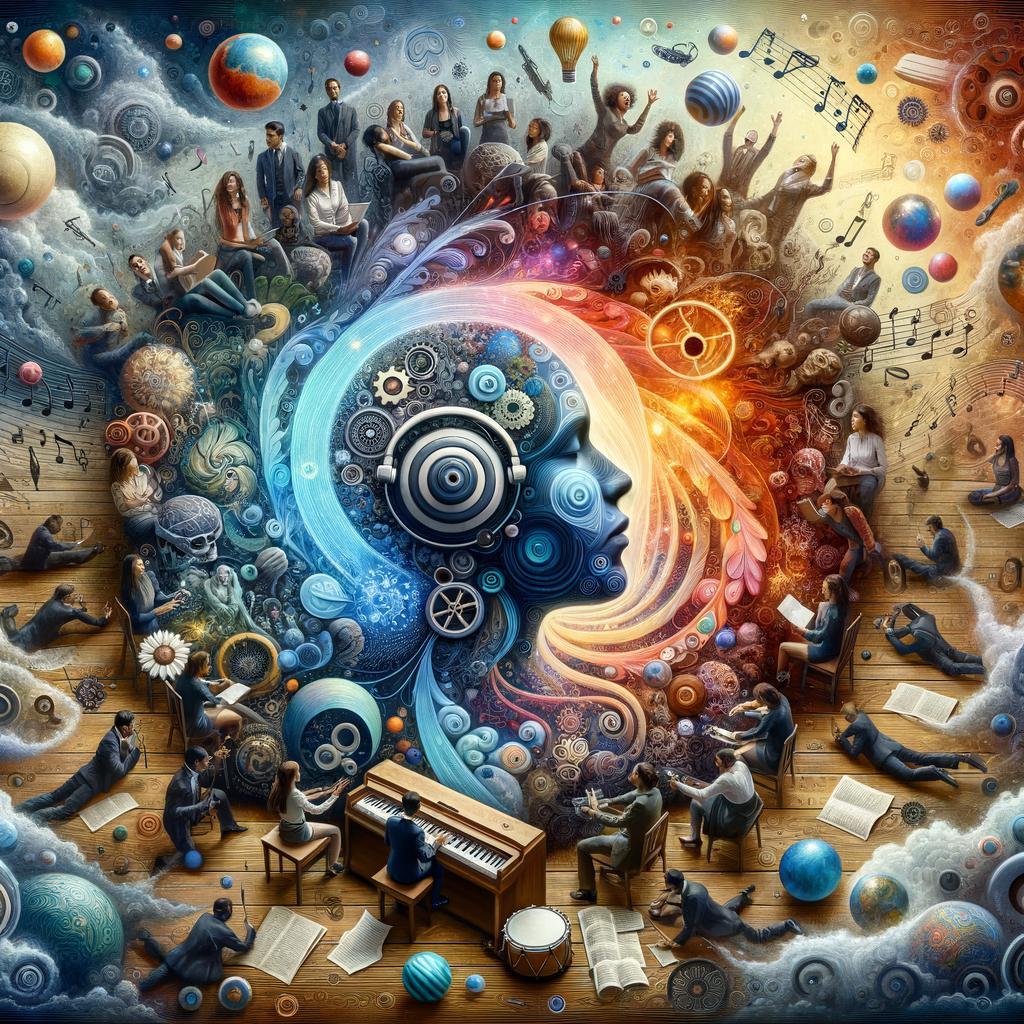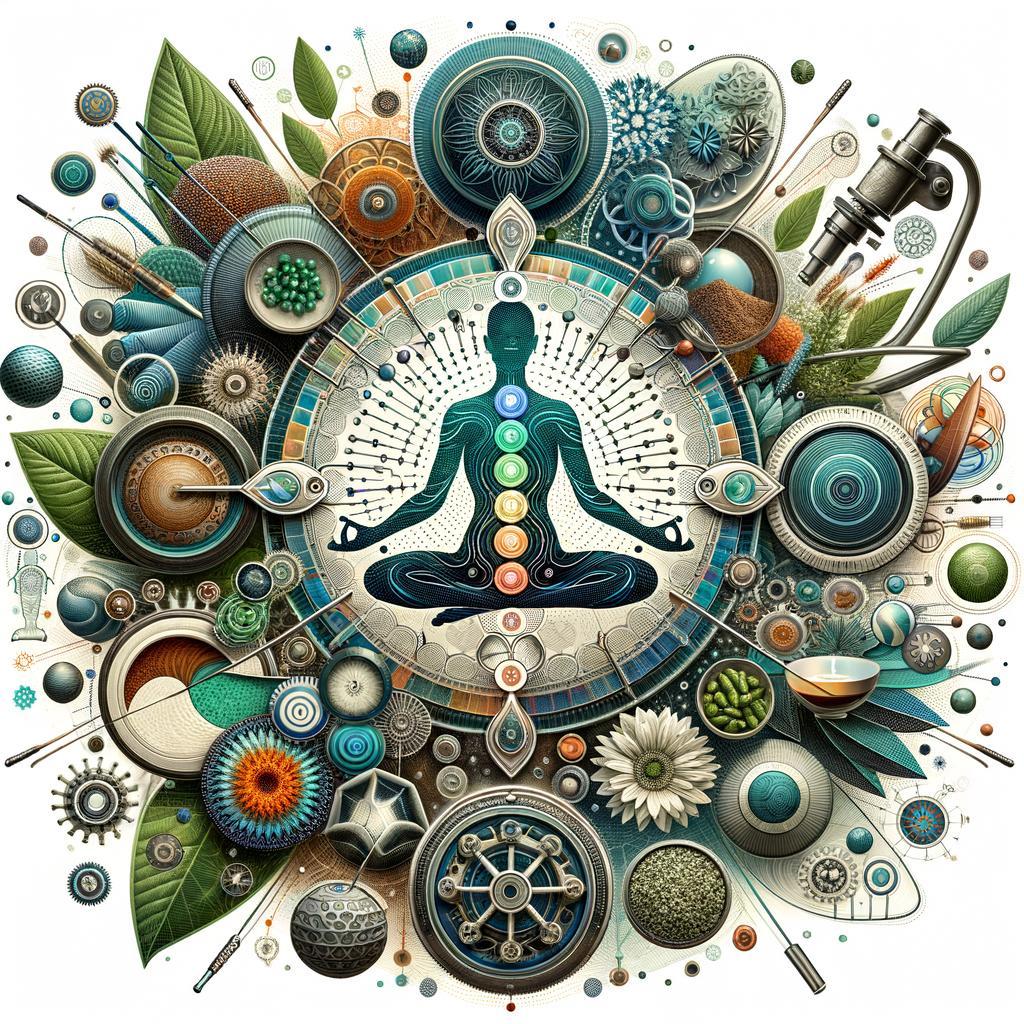“The Role of Music in Emotional Well-Being”
The Role of Music in Emotional Well-Being
In the intricate tapestry of human experience, few threads are as woven into the fabric of our emotions as music. From the moment we hear the first notes of a lullaby cradled in our childhood memories to the anthems that accompany pivotal moments in our lives, music serves as both a backdrop and a beacon for our emotional landscapes. It transcends language, culture, and time, captivating our senses and inviting us into a world where feelings can be expressed without words. But what lies beneath this powerful connection? How does music influence our moods, shape our emotional responses, and foster a sense of well-being? In this exploration, we will delve into the myriad ways music impacts our emotional health, from its therapeutic applications to its role in social bonding, illuminating the profound relationship between melodies and the human spirit. As we navigate this soundscape, we uncover not only the science behind our emotional reactions to music but also the shared experiences that unite us in our quest for joy, solace, and understanding.
Exploring the Connection Between Music and Emotional Resilience
Music serves as a profound source of comfort and strength, enhancing our ability to cope with life’s challenges. The intricate relationship between sound and emotional resilience can be traced back to our earliest experiences. From lullabies soothing infants to upbeat songs uplifting the weary soul, each melody carries the potential to evoke memories and emotions. Studies have shown that engaging with music can lead to improved mood regulation by stimulating the brain’s reward system, significantly reducing feelings of anxiety and depression. It acts not only as an emotional outlet but also as a tool for self-reflection, allowing individuals to process their thoughts and feelings in a constructive manner.
Additionally, the social aspect of music fosters a sense of community and belonging, which is essential for emotional health. Participating in group music activities, such as choir or band, creates connections among individuals, reminding us that we are not alone in our struggles. Some key benefits of music in building emotional resilience include:
- Enhancing cognitive skills: Learning an instrument improves focus and discipline.
- Boosting self-esteem: Mastering a song gives a sense of accomplishment.
- Encouraging expression: Lyrics can articulate feelings we struggle to voice.
- Providing relief: Calm music can significantly lower stress levels.
| Music Type | Emotional Benefit |
|---|---|
| Classical | Reduces stress and promotes relaxation |
| Upbeat Pop | Boosts mood and encourages movement |
| Soft Rock | Facilitates emotional processing and reflection |
| Nature Sounds | Enhances feelings of tranquility |
The Science Behind Sound: How Music Affects Our Brain Chemistry
Music is more than just an auditory experience; it’s an intricate dance of sound waves that influences our brain chemistry in profound ways. When we listen to melodies, our brain releases a cocktail of neurotransmitters and hormones that actively shape our moods and emotions. Some of the most notable include:
- Dopamine: Often referred to as the “happy chemical,” dopamine is released when we listen to music we enjoy, providing feelings of pleasure and reward.
- Oxytocin: This hormone helps to foster social bonding and connectedness, reinforcing the emotional ties we feel towards others, especially during shared musical experiences.
- Serotonin: Music can enhance serotonin production, which aids in regulating mood and creating a sense of well-being.
Moreover, different genres and tempos can evoke varied emotional responses. For instance, upbeat tracks may energize and uplift listeners, while slower, more melodic pieces can promote relaxation and introspection. A fascinating observation is how individuals’ brain wave patterns shift in synchronization with the rhythm and harmonics of the music they engage with. The following table summarizes the emotional effects of various musical elements:
| Musical Element | Emotional Effect |
|---|---|
| Major Keys | Happiness and Joy |
| Minor Keys | Sadness and Reflection |
| Fast Tempo | Excitement and Energy |
| Slow Tempo | Calm and Serenity |
Curating Your Soundtrack: Choosing Music to Enhance Your Mood
Music has an unparalleled ability to influence our emotions and uplift our spirits. To curate a personal soundtrack that truly resonates with your current mood, consider exploring various genres that speak to you. This could include everything from soothing classical melodies when you seek calmness, to upbeat pop anthems that motivate you during workouts. Keep in mind that your playlist doesn’t have to fit a specific genre; blending different styles can create a rich tapestry of sound that reflects your unique emotional landscape. Remember to trust your instincts; if a song makes you smile or evokes a memory, it deserves a place in your collection.
When fine-tuning your music selection, you might find it helpful to categorize songs based on their emotional impact. Here’s a simple table to get you started:
| Emotion | Suggested Genres | Example Artists |
|---|---|---|
| Joy | Pop, Dance | Pharrell Williams, Dua Lipa |
| Calm | Classical, Ambient | Ludovico Einaudi, Brian Eno |
| Motivation | Rock, Hip-Hop | Queen, Kendrick Lamar |
| Nostalgia | Classic Hits | The Beatles, Fleetwood Mac |
Utilizing this approach not only enhances your emotional well-being but also allows for a more profound connection with the music that accompanies your journey. By consciously selecting tunes that fuel your feelings, you can create an empowering soundtrack that not only reflects your mood but amplifies it, turning any moment into a celebration of sound and sentiment.
Practical Techniques for Incorporating Music into Daily Life for Emotional Health
Integrating music into your daily routine can serve as a powerful tool for enhancing emotional health. One effective approach is to curate playlists tailored to different aspects of your day. Consider creating morning motivation playlists to energize your mornings or calming evening collections to unwind and reflect. Pair these playlists with activities such as exercising, cooking, or winding down before bed to reinforce positive associations with your musical selections. The ritual of listening to music can transform mundane tasks into enjoyable moments, offering a simple yet effective boost to your mood.
Another practical technique involves using music as a form of mindfulness. Set aside 10-15 minutes each day to engage in active listening, focusing solely on the music. Close your eyes, take deep breaths, and let the melodies wash over you. This can be especially beneficial when exploring different genres, allowing you to connect emotionally through rhythm and lyrics. Additionally, consider the power of live music experiences, even in virtual formats, which can cultivate a sense of community and shared emotion. For those looking to delve deeper, maintaining a music journal to document your feelings and reflections can enhance self-awareness and provide valuable insights into your emotional landscape.
Concluding Remarks
In the intricate symphony of life, music emerges as a powerful instrument that resonates deeply within our emotional landscapes. Its ability to evoke memories, provide comfort, and foster connections serves as a testament to its profound impact on our well-being. As we’ve explored, the melodies that surround us can uplift our spirits, help us navigate the complexities of our feelings, and even serve as a catalyst for healing.
As you step away from this exploration, consider the soundtrack of your own life. What songs carry you through moments of joy, sorrow, or reflection? Remember that, whether through the soothing notes of a lullaby or the invigorating rhythms of an upbeat anthem, music holds the capacity to enrich our emotional tapestry.
So, the next time you seek solace or inspiration, turn to the magic of music. Allow it to guide you, comfort you, and remind you of the shared human experience that unites us all. After all, in the dance of emotions, music will always be there to lead the way.













Post Comment